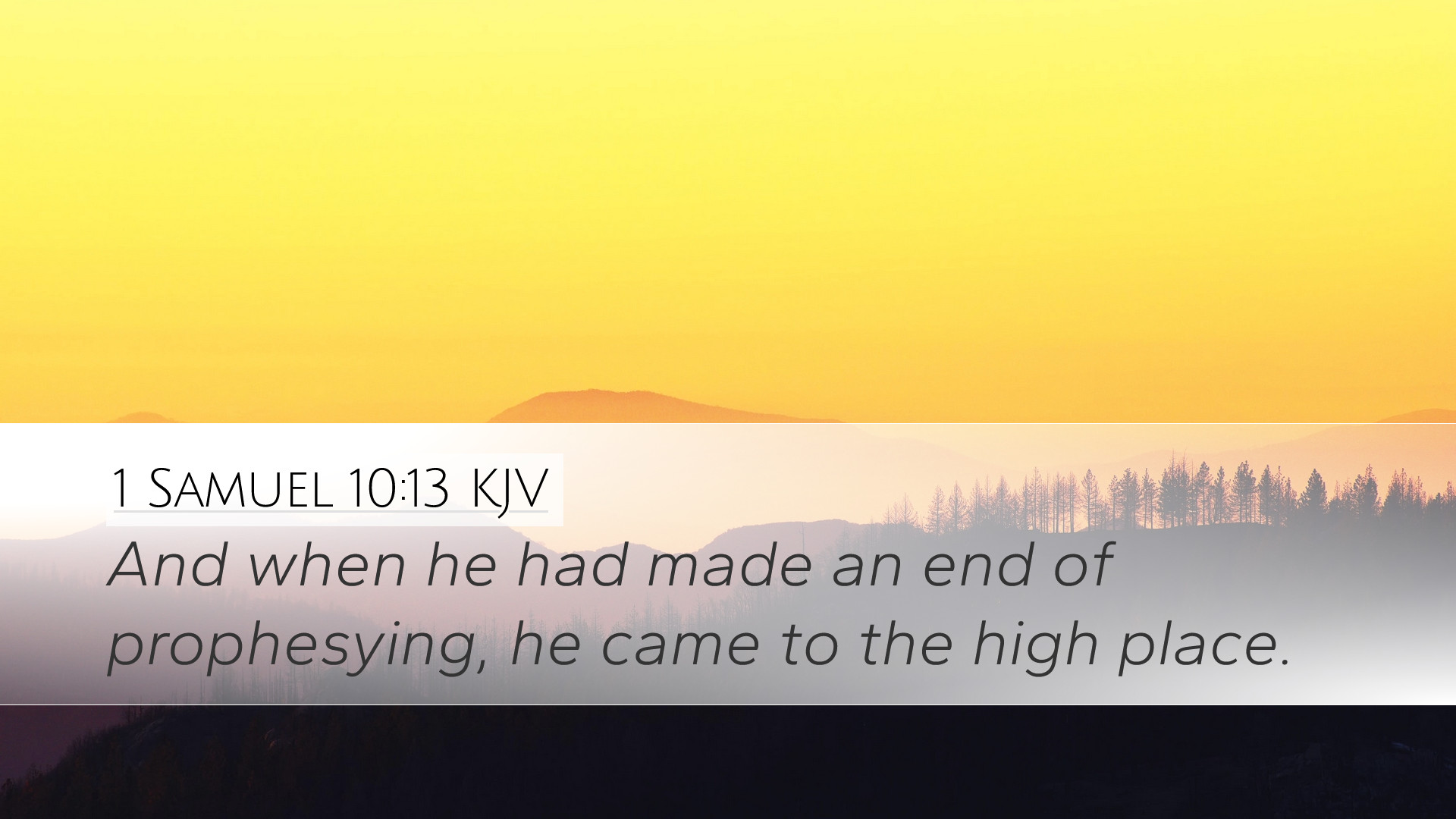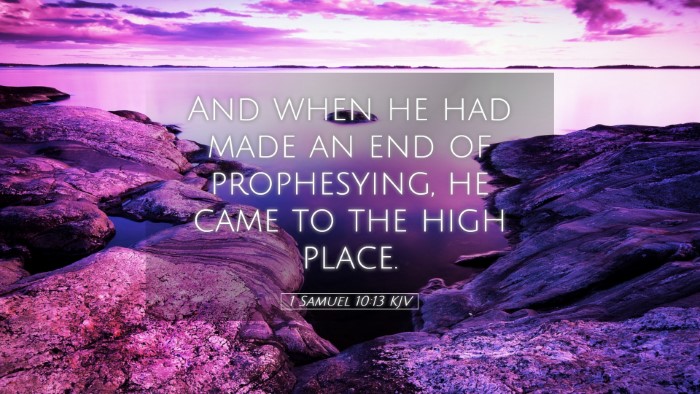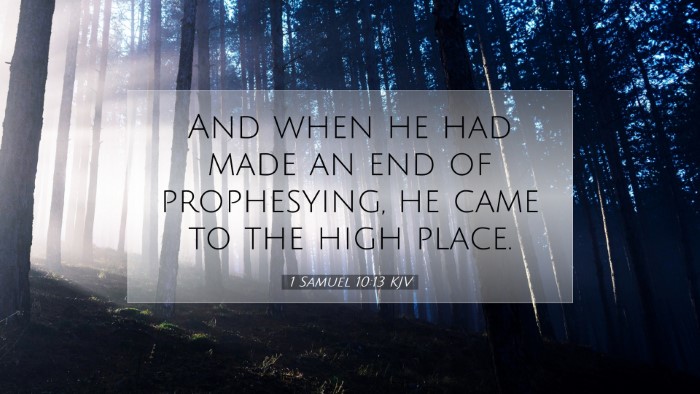1 Samuel 10:13 - Commentary and Insights
Verse Reference: 1 Samuel 10:13
“And when he had made an end of prophesying, he came to the high place.”
Contextual Background
In this passage, we find Saul, the chosen king of Israel, after undergoing an extraordinary spiritual experience. Prior to this moment, the Israelites had demanded a king, and God appointed Saul through the prophet Samuel. The ceremony of anointing Saul is significant in both religious and social terms, marking a transitional phase in Israel's governance from judges to monarchical rule.
Insights from Public Domain Commentaries
Matthew Henry
Matthew Henry emphasizes the transformative power of the Holy Spirit evident in Saul’s experience. He notes that prophesying is an act marked by divine inspiration, and it signifies a change in Saul’s heart and nature as he is filled with the Spirit of God. The high place symbolizes the connection to worship and the acknowledgment of God’s authority in kingship.
According to Henry, the act of coming down from the high place after prophesying indicates that Saul's subsequent actions will reveal whether he will be a servant of God or be swayed by the allure of power. This moment serves as a pivotal point, where God is affirming his choice while providing Saul with a divine encounter that equips him for leadership.
Albert Barnes
Albert Barnes highlights the significance of the phrase "when he had made an end of prophesying." This denotes a period when Saul is under the influence of the Holy Spirit, and while this experience empowers him, it also serves a didactic purpose for both him and the people of Israel. Barnes explains that such prophetic experiences were not uncommon in Israel, often resulting in drastic character changes.
Additionally, Barnes points out that Saul’s journey to the high place encapsulates a deeper truth about leadership. It is a reminder that being filled with the Spirit enables one to lead effectively, bringing a divine perspective to human decisions. Saul's experiences act as both a blessing and a challenge, indicating that he must be vigilant in retaining his devotion to God amidst the responsibilities of kingship.
Adam Clarke
Adam Clarke provides a critical analysis of Saul's actions post-prophesying. He reflects on the implications of Saul sharing in the prophetic experience, which means that he is initiated into the sacred authority of Israel. This is a signal of God's endorsement, but Clarke warns that charisma must not substitute true inner righteousness and obedience to God.
Clarke emphasizes the importance of the high place in Israelite culture, noting it would be a place of worship and sacrifice, highlighting that leadership should always be rooted in devotion to God. The shift from prophesying back to the daily life at the high place serves as a cautionary tale about the volatility of human nature and the need for constant reliance on divine guidance.
Theological Reflections
The passage encourages reflections on the nature of divine calling and the responsibilities that accompany such a calling. The transformation in Saul from an ordinary man to a prophesying leader emphasizes the profound change that the Spirit can effect in an individual's life. It illustrates how God equips those He calls, even in seemingly improbable circumstances.
Furthermore, the prophesying acts as a precursor to the larger narrative of Israel's future. It foreshadows the complexity of Saul’s reign—marked by great potential hindered by profound personal failures. As pastors and theologians consider this passage, it's critical to recognize that divine anointings come with both authority and accountability.
Application for Leaders
For pastors and church leaders, Saul's experience serves as a reminder of the need for spiritual preparedness and ongoing reliance on God's guidance. The emphasis on coming down from the high place reflects the dual nature of spirituality—one must remain grounded while embodying the divine call. Spiritual leaders are called to balance the sacred with the secular, ensuring that their leadership reflects the humility and service demonstrated by Christ.
Final Thoughts
1 Samuel 10:13 encapsulates a critical moment in Israel’s history, where divine purpose intersects with human leadership. The insights drawn from classical commentaries remind us of the importance of aligning our actions with God’s will, fostering a genuine devotion that underpins our capacities as leaders in the faith community. Each leader is encouraged to seek not only the anointing of the Holy Spirit but also to maintain a heart that pursues God's righteousness above all.


